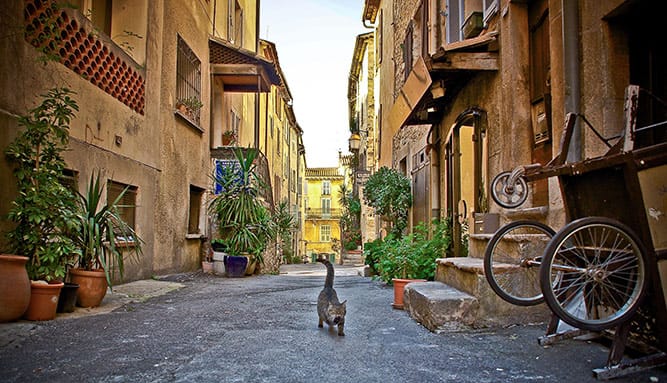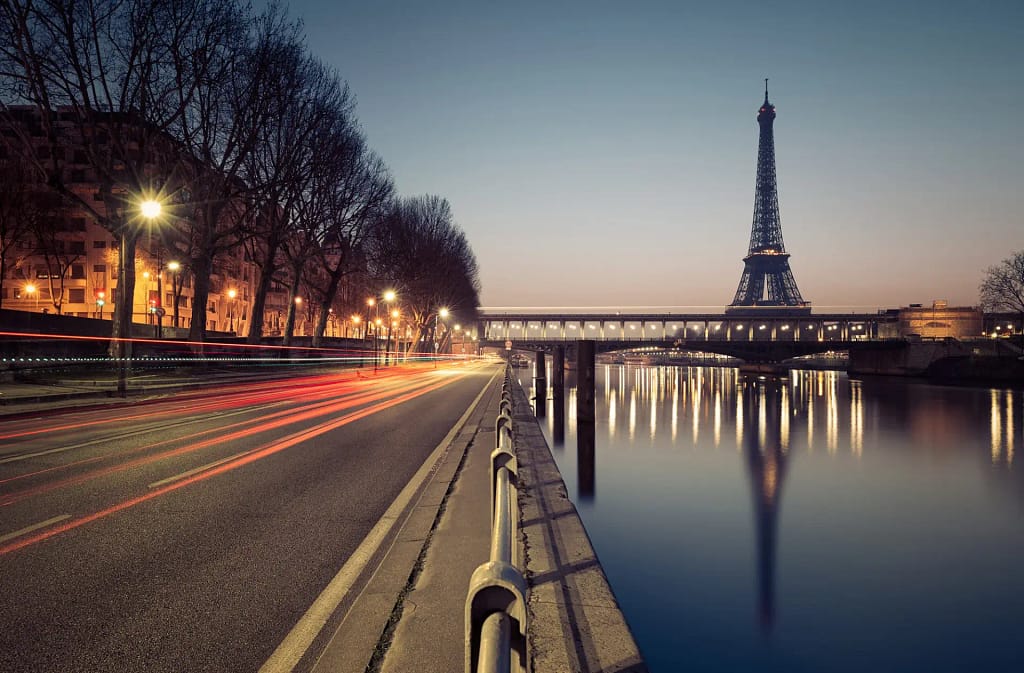Thanks to economic stability and an incredible quality of life, France is one of the world’s most popular destinations for buying a second home and investing in rental property. Additionally, with such a diverse landscape, buyers can choose property in a variety of settings, including a vibrant city, peaceful countryside or scenic coast.
Furthermore, despite post-Brexit challenges, France continues to have an attractive real estate market for those from non-EU countries, including the UK. In this guide, we’ll explain why second-home ownership in France is favored by high-net-worth buyers.
Table of Contents
Why Is France a Smart Financial Investment?
There are numerous reasons why buying property in France is a smart financial investment, including the country’s market stability, rental potential and long-term appreciation.
Is the French Property Market a Safe Investment?
The property market in France is known for stability and long-term appreciation, particularly in sought-after areas like the French Riviera, the French Alps and Paris. Properties in these areas tend to climb in value due to regular demand from local and international buyers.
Furthermore, urbanisation control measures that regulate the growth of cities keep the market from getting saturated, which adds to its resilience. For example, even during times of economic downturn and crises, high-end apartments in desirable locations have maintained their value.
Can I Generate Attractive Rental Income from My Second Home?
Not only can investing in a second home be beneficial for your lifestyle, but it can also be a smart financial investment if you decide to rent it out while you’re not using it.
By buying a second home in a tourist-heavy area of France, you can generate rental income when you’re not using the property yourself. High-season periods — like spring in Paris or summer in the French Riviera — are the best times to rent out your property in these areas, as demand is high and you can charge a premium.
Overall, the French property market is strongly influenced by tourism trends, especially in coastal and ski resorts, allowing you to capitalize on the demand for short-term rentals.
What Tax Advantages Are Available for Foreign Buyers?
There are several tax advantages for foreign investors who buy property in France, such as:
- After owning the property for upwards of 5 years, you may be eligible for tax reductions on capital gains. After 22 years, you could be entirely exempt from income tax on capital gains.
- Under the non-professional furnished lessor (LMNP) status, you may be eligible to deduct depreciation each year, reducing your tax on rental income.
- If you’re interested in buying a new-build property, you may be eligible for Para-Hotelier incentives like tax-free rental income for a number of years. This can increase your return on investment (ROI), particularly during your first years of ownership.
- The Malraux Law allows for tax reductions when renovating or restoring buildings in designated historic areas.
Before deciding on a property, it’s wise to consider the tax advantages related to different property types in France.
Can I Finance My Second Home as a Non-Resident?
Yes! Even better, overseas buyers have attractive finance options for French property.
Historically, France has offered low mortgage rates, which makes financing a property accessible to many buyers. Moreover, fixed-rate mortgages make it easier for homeowners to budget for upwards of 20 years into the future.
EU citizens are eligible for especially favorable mortgage conditions, but even non-EU buyers are often able to borrow up to 85% of the property value.
For some people, particularly high-net-worth property buyers, financing an investment property may be more attractive than paying for it in cash due to the tax advantages. This also allows wealthy buyers to use capital on other investments while paying a low interest rate on a French mortgage.
What Makes Living in France So Appealing?
France’s arts, culture and gastronomy scenes, combined with rich history and varied landscapes, make it a globally recognised destination for those seeking a high quality of life.
There are a variety of climates throughout France, including mild Mediterranean weather, tropical conditions, and cold, snowy regions. If you’d like to experience all four seasons while living in France, consider a home in or near Paris.
Famously, life in France emphasises a work-life balance, with most people adopting a “work to live” mindset rather than the other way around. Notably, France’s typical full-time workweek is 35 hours, and some companies have adopted a four-day workweek schedule.
All of that free time makes it possible to take advantage of France’s many regions, whether you’re seeking out a vibrant, bustling city or a peaceful retreat in the countryside.
France also has excellent public services that enhance the quality of life for residents as well as travelers. For example, the education system in France is No. 16, and there are numerous expat schools throughout France for families that have come from abroad. France’s healthcare system is also among the world’s top 20, boasting accessible services and affordable prices.
In Paris and other major cities, there are fantastic transportation networks, including international airports and high-speed trains. This makes both domestic and international travel convenience for residents as well as tourists. Additionally, thanks to France being located centrally in Europe, it’s a preferred base for visiting neighboring countries.
Where Are the Best Places to Buy a Second Home in France?
Practically any type of lifestyle preference can be satisfied in France — rustic living in Provence’s renovated farmhouses, sophisticated apartments in the heart of Paris, coastal villas in the French Riviera, and more.
Why Is the South of France So Popular?
The French Riviera is a premier location in France that continually attracts wealthy buyers. Antibes, Cannes, Nice and Saint-Tropez are particularly popular for second homes, as many holidaymakers head to these areas. Beautiful coastlines, a mild Mediterranean climate, exciting nightlife and luxury amenities are appealing to anyone after a jet-setter’s lifestyle.
Do Home Buyers Look for Property in the French Alps?
The French Alps are highly sought-after by skiers, snowboarders and other types of outdoor adventurers. Popular ski resorts like Les Gets and Morzine, along with those near Annecy and Lake Geneva, provide recreational opportunities in incredible settings. It’s also possible to find a French Alps home near a major business hub, allowing you to combine recreation with professional opportunities.
Is Paris Still a Good Option?
France’s major cities offer access to cultural attractions, along with a cosmopolitan way of life and convenient transportation options. One of the most sought-after urban locations for a second home in France is in Paris, particularly in arrondissements 1 through 8, which are the central districts. There is also a high number of second homes in the 15th and 16th arrondissements.
What Should Overseas Buyers Know About Practicalities?
Today, homebuyers are often curious about how Brexit has impacted the market for non-EU residents. Beyond that, there’s always a question of practicality when it comes to working for holidaymakers and tourists who must maintain their careers even while traveling.
How Has Brexit Affected UK Buyers?
Brexit introduced challenges for British residents who want to buy a home in France.
For example, there’s now a 90-day stay limit for British citizens visiting an EU country for leisure purposes (if you plan to carry out business in France, you’ll need a work permit). For up to 90 days during a 180-day period, you don’t need a visa to stay in an EU country. However, after those 90 days, you’ll need a visa in order to stay for longer.
Fortunately, this change hasn’t deterred property investment in France. In fact, it’s sparked more interest from some UK buyers who want to stay connected to Europe through property investments.
Can I Work Remotely From My French Home?
As remote work becomes widespread, it’s practical for people to enjoy an extended stay at their second-home property while maintaining their employment. Modern work flexibility also makes travel more appealing, which could lead to increased interest in rental properties. When searching for a second home that you plan to rent out, consider buying a property with high-speed internet access and a home office to appeal to working travelers.
Final Thoughts: Is Now the Right Time to Buy in France?
Though challenges are part of any property buying experience, they don’t mean you have to miss out on the appealing market conditions, financial benefits and quality of life that come with owning a home in France. While Brexit certainly ushered in changes and complexity to property buying in France for UK residents, it didn’t make the market inaccessible or unattractive to overseas buyers.
By carefully considering location, tourism, financing, and tax implications, you can maximise the perks of buying a second home in France. It’s best to work with an estate agent who can help you navigate the process of buying a home in France from abroad.






